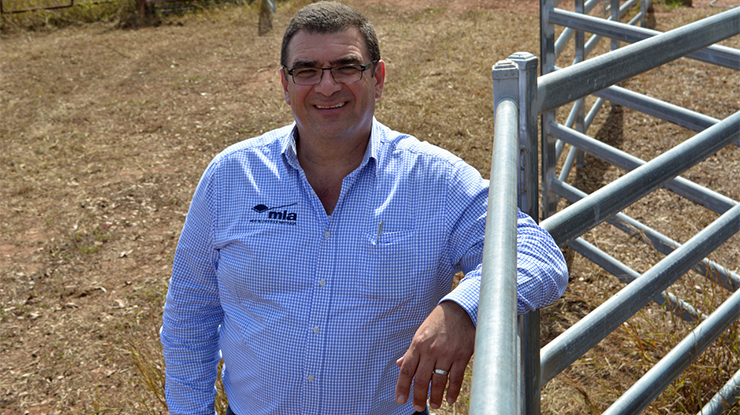Setting the record straight
18 July 2019

As incomes increase, consumers are demanding more from their red meat.
Not only do they want to satisfy their rational needs like curbing hunger, enjoying a meal with friends and meeting their protein requirements, they have emotional needs to meet as well, says MLA’s Managing Director Jason Strong.
“Emotional needs include feeling confident that animals were looked after throughout their livelihoods, the environment was well looked after and, in some cases, whether or not the product was locally sourced,” Jason said.
“While emotional needs aren’t always objective, they are about feeling like a good citizen, being informed and making decisions you’re confident are good.
“These emotional needs need to be met as much as rational needs and will be a big consideration in how we engage with the community going forward.”
Misinformation the real enemy
“We have a real challenge in a segment of consumers who are misinformed about how their food’s produced,” Jason said.
“They’ll be chatting around a barbecue and say ‘I hear that in order to grow beef, you have to knock down trees to grow grass. Australia is a large exporter of beef so therefore we must be knocking down a lot of trees.’ Very quickly, that misinformation becomes fact among their group.”
Compounding this is confirmation bias, where internet searches and social media continue to deliver content as an interest is detected, reaffirming misinformed beliefs and reinforcing a certain version of the truth.
While misinformation is challenging enough, the absence of information can be just as detrimental.
“In the absence of complete and accurate information, people will come to their own conclusions,” Jason said.
“This misinformation or lack of information is often in areas that relate to the emotional needs that consumers have with red meat.”
On the front foot
Demonstrating that production of red meat in Australia is sustainable is essential, Jason said.
“MLA is continually communicating the good job producers do, the high standards of animal welfare in the industry and the sustainability credentials of the industry,” Jason said.
The Australian Good Meat website engages directly with consumers and society about how beef and lamb is produced, acknowledging and answering all questions posed.
MLA research shows the group typically limiting red meat for animal welfare reasons to be 25–49 years old, well-educated, affluent and more likely to reside in inner city locations. It targets this group through food events, online content and social media, with producers acting as advocates. School programs are also utilised and MLA’s Rare Medium program aims to share the red meat story with chef influencers and lifestyle influencers.
MLA also deals with a raft of organisations, such as the RSPCA, the Dietitians Association of Australia and Cancer Council, to ensure the red meat story is being told in the most compelling and transparent way to build trust with consumers.
“But MLA can’t be the only voice. We need producers to also engage with the community and tell the story of how they produce red meat. MLA endeavors to support our producers to do this,” Jason said.
“We also need producers accepting nothing but the highest standards in animal welfare and environmental sustainability.
“In doing so, we’ll meet the needs of the consumers who really matter to our industry.”
Advocacy workshops
MLA continues to run workshops for producer members who are interested in learning more about advocacy and crisis management and how to be positive and more proactive in an environment of closer scrutiny to how we farm in Australia.
The workshops cover a range of topics and can be tailored based on producer feedback, but broadly they develop skills in being an advocate for industry, how to identify and tell your story as a producer, crisis and issues management and media training.
MLA’s Community Program Manager Jax Baptista said the workshops are intended to build closer relationships with progressive red meat industry producers, to provide them with information about the Australian red meat industry and the challenges that the industry faces.
“They’ll also help build a cohort of passionate, positive and proactive producers who are willing to promote and advocate for their industry,” she said.
Upcoming workshops are planned for WA and Tamworth.


